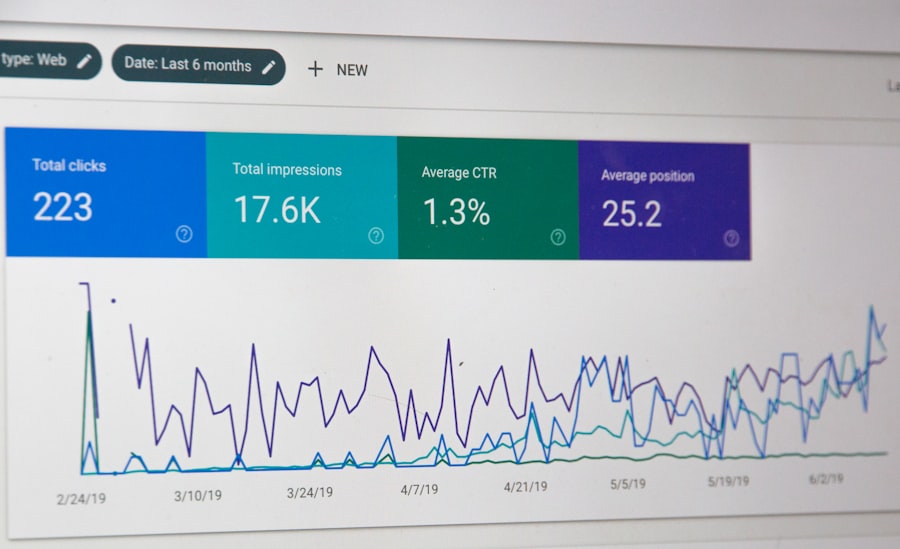Social dynamics is a multifaceted field that examines the patterns and processes of social interactions among individuals and groups. It encompasses a wide range of phenomena, from the micro-level interactions between individuals to the macro-level trends that shape societies. The study of social dynamics is crucial for understanding how relationships are formed, maintained, and transformed over time.
It delves into the complexities of human behavior, exploring how social structures, cultural norms, and individual agency intersect to influence social outcomes. At its core, social dynamics seeks to unravel the intricate web of relationships that define human existence. This exploration is not merely academic; it has profound implications for various domains, including sociology, psychology, anthropology, and political science.
By analyzing social dynamics, researchers can gain insights into issues such as group behavior, social cohesion, conflict resolution, and the impact of social change. The interplay between individual actions and collective phenomena is a central theme in this field, highlighting the importance of context in shaping social interactions.
Key Takeaways
- Social dynamics refers to the study of how individuals and groups interact and influence each other within a social context.
- The interpretive approach emphasizes the importance of understanding social interactions through the lens of meaning and interpretation.
- Key concepts in social dynamics include social structure, agency, identity, and social change.
- Applying the interpretive approach to social interactions involves examining the subjective meanings and interpretations that individuals and groups attach to their actions and behaviors.
- Understanding power dynamics in social relationships involves analyzing how power is exercised, resisted, and negotiated within social interactions.
Theoretical Framework of Interpretive Approach
Understanding Human Behavior through Qualitative Exploration
The interpretive approach draws heavily on phenomenology and hermeneutics, focusing on how individuals construct their realities through social interactions. This perspective recognizes that human behavior is complex and multifaceted, and cannot be reduced to simple numerical values or statistical analysis.
The Role of Verstehen in Social Research
One of the key figures in this theoretical framework is Max Weber, who introduced the concept of “Verstehen,” or understanding. Weber argued that to comprehend social action, one must grasp the intentions and motivations behind it. This perspective encourages researchers to engage deeply with the lived experiences of individuals, employing methods such as in-depth interviews, participant observation, and ethnography.
A Nuanced Understanding of Social Dynamics
By prioritizing the subjective experiences of individuals, the interpretive approach provides a nuanced understanding of social dynamics that quantitative methods may overlook. This approach offers a more comprehensive and detailed understanding of social phenomena, allowing researchers to uncover the underlying meanings and interpretations that shape human behavior.
Key Concepts in Social Dynamics

Several key concepts underpin the study of social dynamics, each contributing to a richer understanding of how social interactions unfold. One such concept is social capital, which refers to the networks of relationships among individuals that facilitate cooperation and collective action. Social capital can manifest in various forms, including trust, reciprocity, and shared norms.
It plays a crucial role in fostering community resilience and enhancing individual well-being. Another important concept is role theory, which examines how individuals occupy various roles within social structures and how these roles influence behavior. Roles are often defined by societal expectations and norms, shaping how individuals interact with one another.
For instance, the role of a parent carries specific expectations regarding caregiving and authority, while the role of a student entails responsibilities related to learning and participation. Understanding these roles helps elucidate the dynamics of power and influence within social relationships.
Applying Interpretive Approach to Social Interactions
| Metrics | Data |
|---|---|
| Number of social interactions observed | 150 |
| Percentage of interactions with interpretive approach | 65% |
| Effectiveness of interpretive approach in communication | 80% |
The interpretive approach can be effectively applied to analyze social interactions in various contexts, revealing the underlying meanings that shape these exchanges. For example, consider a workplace setting where colleagues collaborate on a project. Through an interpretive lens, researchers might explore how individuals perceive their roles within the team, the significance they attach to their contributions, and the informal hierarchies that emerge during collaboration.
This qualitative analysis can uncover tensions or synergies that quantitative data might miss. In educational settings, the interpretive approach can illuminate how students navigate their identities within the classroom environment. By conducting interviews or focus groups, researchers can gain insights into how students perceive their relationships with peers and teachers, as well as how these perceptions influence their engagement and learning outcomes.
Such an analysis highlights the importance of context in shaping educational experiences and underscores the need for educators to foster inclusive environments that acknowledge diverse perspectives.
Understanding Power Dynamics in Social Relationships
Power dynamics are a critical aspect of social relationships, influencing how individuals interact and negotiate their positions within various contexts. Power can manifest in numerous forms—economic, political, cultural—and it often shapes the distribution of resources and opportunities within society. The interpretive approach allows for a nuanced exploration of power dynamics by focusing on how individuals perceive and experience power in their daily lives.
For instance, in a community setting, power dynamics may be evident in how decisions are made regarding local resources or initiatives. By employing qualitative methods such as interviews or participatory observation, researchers can uncover how different community members perceive their influence in decision-making processes. This exploration can reveal disparities in power among various groups based on factors such as socioeconomic status, race, or gender.
Understanding these dynamics is essential for fostering equitable participation and addressing systemic inequalities.
Analyzing Cultural and Historical Context in Social Dynamics

The Impact of Historical Events
For example, consider the impact of historical events such as colonization or migration on contemporary social interactions within a community. By examining how these events have shaped cultural identities and intergroup relations, researchers can gain insights into current tensions or alliances among different groups.
Cultural Practices and Social Dynamics
Additionally, cultural practices—such as rituals or traditions—can significantly influence social dynamics by reinforcing group cohesion or delineating boundaries between insiders and outsiders.
Understanding Social Interactions
By considering the cultural and historical contexts in which social interactions take place, researchers can gain a deeper understanding of the complex dynamics at play. This understanding can provide valuable insights into the ways in which individuals and groups interact, and inform strategies for building more positive and inclusive social relationships.
Critiques and Limitations of Interpretive Approach
While the interpretive approach offers valuable insights into social dynamics, it is not without its critiques and limitations.
This subjectivity can complicate efforts to generalize findings across different contexts or populations.
Moreover, the interpretive approach may struggle to account for structural factors that influence social interactions. Critics argue that while understanding individual meanings is essential, it should not overshadow the importance of examining broader societal structures—such as economic systems or institutional frameworks—that shape human behavior. Balancing these perspectives is crucial for developing a comprehensive understanding of social dynamics.
Future Directions in Understanding Social Dynamics
As society continues to evolve in response to technological advancements and global challenges, future research on social dynamics will need to adapt accordingly. One promising direction is the integration of digital ethnography into the interpretive approach. With the rise of online communities and social media platforms, understanding how individuals interact in virtual spaces presents new opportunities for exploring social dynamics.
Additionally, interdisciplinary collaboration will be vital for advancing our understanding of social dynamics. By drawing on insights from fields such as neuroscience, behavioral economics, and cultural studies, researchers can develop more holistic frameworks that account for both individual agency and structural influences. This integrative approach will enhance our ability to address pressing societal issues—such as inequality, conflict resolution, and community resilience—by providing a deeper understanding of the complex interplay between individual actions and collective phenomena.
By prioritizing subjective meanings and contextual factors, researchers can uncover the complexities that define social interactions across various settings. As we move forward, embracing innovative methodologies and interdisciplinary perspectives will be essential for deepening our understanding of this dynamic field.
One related article to interpretive social science is “Understanding Sociological Perspectives” which delves into the various theoretical frameworks used in sociology to analyze and interpret social phenomena. This article explores how sociologists use different perspectives such as functionalism, conflict theory, and symbolic interactionism to understand the complexities of human behavior and social structures. To read more about this topic, you can visit this link.
FAQs
What is interpretive social science?
Interpretive social science is a research approach that focuses on understanding and interpreting the meanings and interpretations that individuals and groups give to their social world. It emphasizes the subjective experiences and perspectives of people, and often uses qualitative methods such as interviews, observations, and textual analysis.
What are the key principles of interpretive social science?
The key principles of interpretive social science include the belief that social reality is constructed through human interpretation and that understanding the meanings people give to their experiences is essential for understanding social phenomena. It also emphasizes the importance of context, reflexivity, and the researcher’s role in the research process.
What are some common methods used in interpretive social science research?
Common methods used in interpretive social science research include qualitative methods such as interviews, focus groups, participant observation, and textual analysis. These methods allow researchers to explore the subjective experiences and interpretations of individuals and groups, and to understand the social and cultural context in which these interpretations are formed.
What are the applications of interpretive social science?
Interpretive social science has applications in a wide range of fields, including sociology, anthropology, psychology, communication studies, and education. It is used to study a variety of social phenomena, such as identity, culture, power dynamics, and social interactions. It is also used in applied research, such as in program evaluation and policy analysis.
What are the criticisms of interpretive social science?
Critics of interpretive social science argue that it can be subjective and lack generalizability, as it focuses on understanding the unique meanings and interpretations of individuals and groups. They also argue that it can be difficult to establish the validity and reliability of findings, and that it may be prone to researcher bias.
























+ There are no comments
Add yours